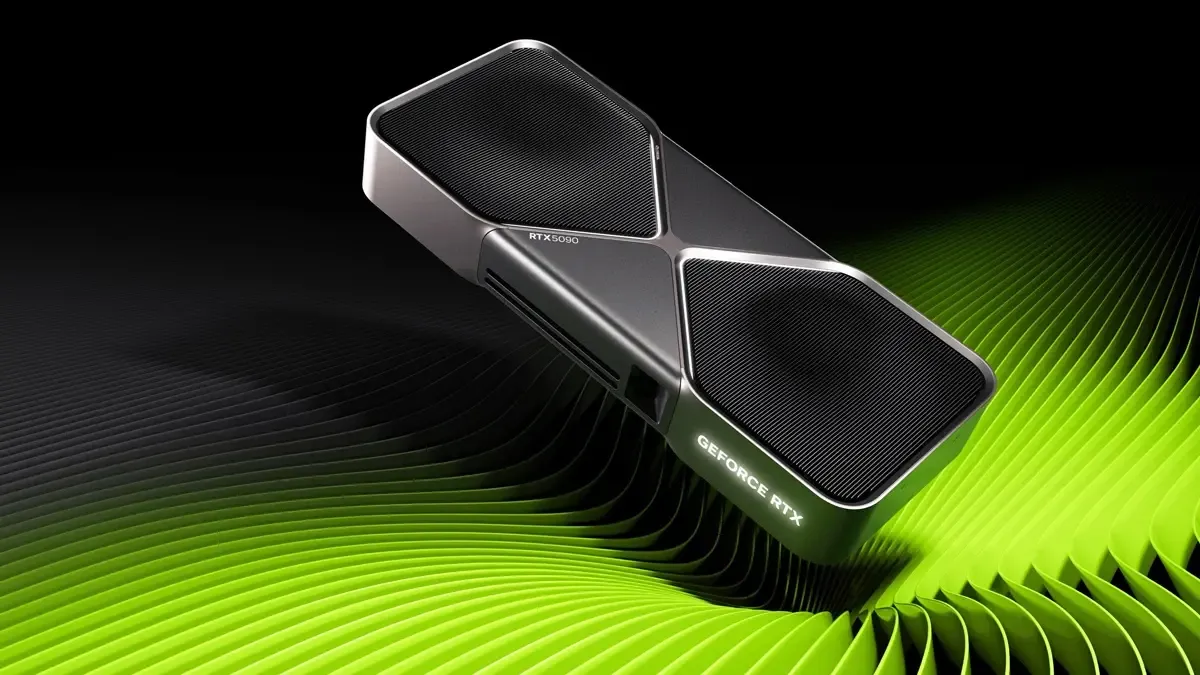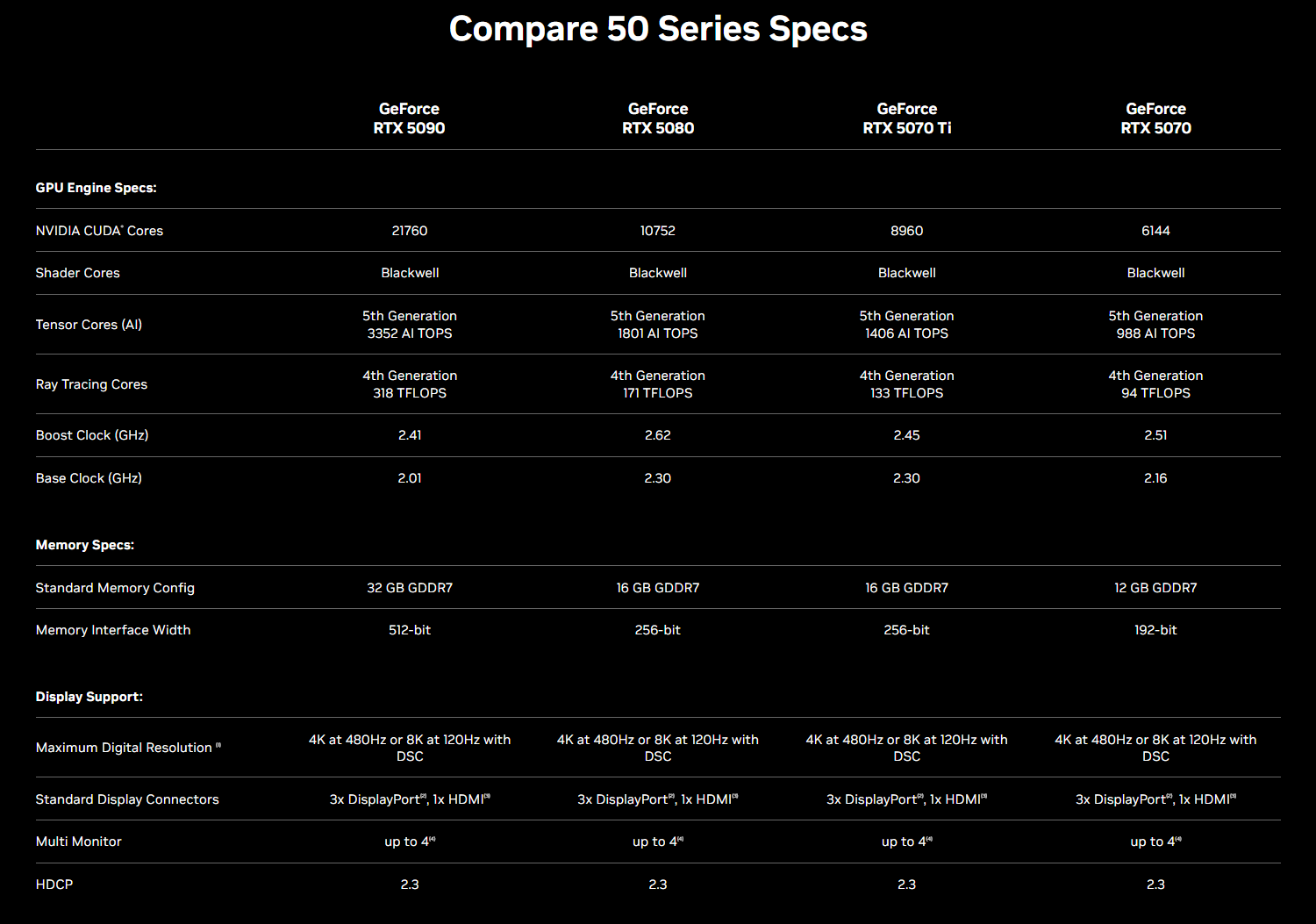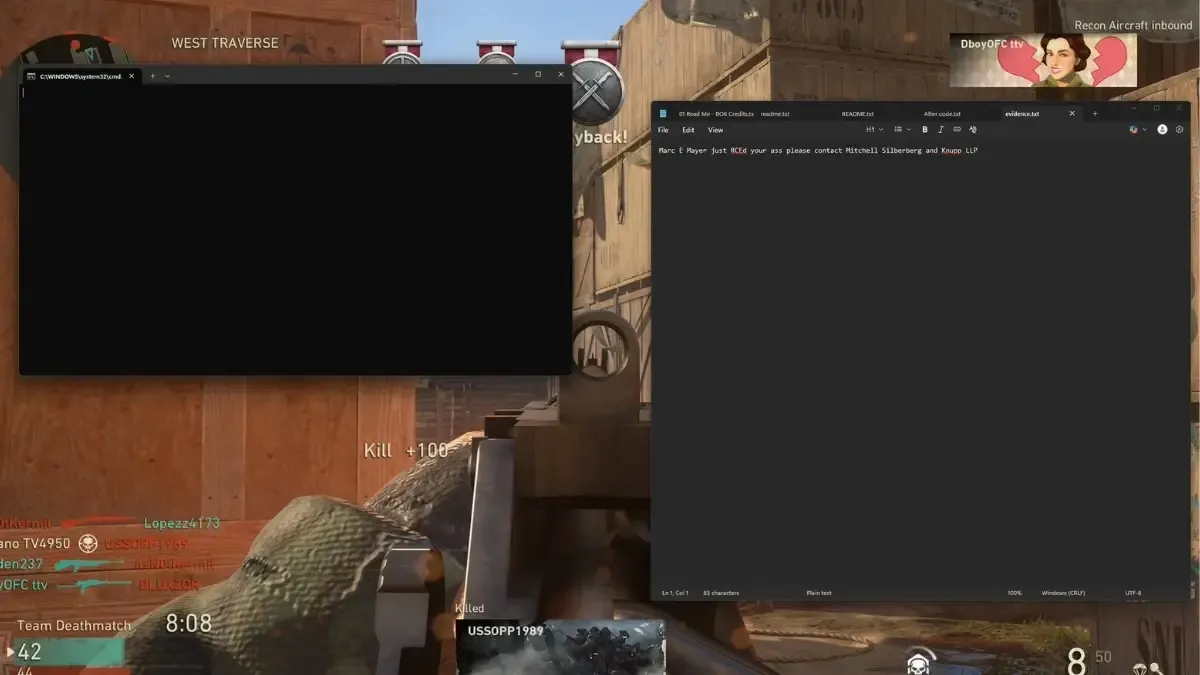Image: Nvidia
Nvidia has announced the GeForce RTX 50 series of graphics cards.
Nvidia took to CES 2025 this week to show off its next generation of graphics cards: the GeForce RTX 50 series. This lineup of cards includes the RTX 5090, the RTX 5080, the RTX 5070 Ti, and the RTX 5070, with variants for desktop and mobile. The new cards feature expected improvements over the previous 40-series cards, including DLSS 4. Don’t expect these upgrades to come cheap, however.
Nvidia's new RTX 50-series cards start at $549
The RTX 50-series cards are going to be rather costly when they start launching later this month. The RTX 5070 is the most “cost-effective” of the bunch, as it aims to deliver roughly the “same level of performance” as the RTX 4090 at a price of $549, although we suspect that this “performance bump" will only be available on titles that support DLSS 4.
DLSS 4 touts to increase frame generation by 3x of DLSS 3, so this is one of the reasons why the 5070 will be able to reach frame rates that only the RTX 4090 with DLSS 3 could. When it comes to pure “brute-force” rasterisation of the cards, only time and third party reviews will be able to tell us if there is significant improvement over the previous generation's RTX 40 series.
The RTX 5070 Ti will cost $749, and both 5070 cards will launch sometime in February.
The stronger RTX 5080 and RTX 5090 will be available for purchase on January 30, however. The RTX 5080 will cost $999, but the RTX 5090 will cost an absolutely staggering $1,999. These cards differ from the RTX 40-series by moving to GDDR7 video memory (VRAM), compared to the older generation’s GDDR6X, allowing them to deliver more powerful performance with more power efficiency.
Nvidia is also pushing DLSS 4 with these cards, building on previous generations of the DLSS tech. Nvidia’s cards use DLSS to boost gaming performance by generating new in-game frames via AI. With DLSS 4, the 50-series cards will be able to generate three frames using AI for every one rendered using the actual GPU, which allows games to run more smoothly.
Here are some specs for the 50-series cards:
You can find Nvidia's full specifications for the entire 50-series lineup of cards here.








